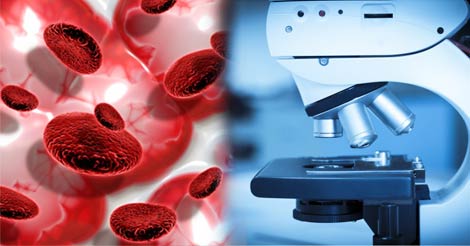Makerere's Lung Institute to fight cancer

The director of Makerere University Lung Institute, Dr Bruce Kirenga, speaking to journalists at Fairway Hotel in Kampala on May 13, 2022. PHOTO/DAVID S MUKOOZA
What you need to know:
- The five-year project is supported by USA government, Ministry of Health, Uganda Cancer Institute and joint clinical research centre.
Makerere University Lung Institute has set up a project, which will enable early detection of lung cancer and create a treatment programme.
Dr Bruce Kirenga, the director at the Makerere University Lung Institute, said about two years ago, research fellows analysed a cohort of lung cancer patients and found out that lung cancer reported at stage four is almost incurable.
He said they also found that most of these patients, who were mainly women, had never smoked tobacco, which is a major risk factor for lung cancer.
“Because of that, we decided to think of other possible explorations and one of them is environmental and others are infections like HIV and Tuberculosis, so we started to work with our colleagues in the ministry to set up this project,” he said.
While addressing the media in Kampala, Dr Kirenga said the true burden of lung cancer is still unknown in Uganda because population risk surveys have not been conducted in the country.
“However, what we know is the things that cause cancer which we call risk factors are here and other diseases that are related to lung cancer and come from those risk factors are also here. The example is the high indoor and outdoor air pollution,” he added.
ALSO READ: 4 signs that you may have cancer
Dr Kirenga says lung cancer can also arise from genetic mutation.
Research

Cancer is detected at a late stage because people delay to go for screening, doctors say.
Dr Irene Najjingo, an administrator and one of the people who will guide the implementation of the project, said they will study the epidemiology of lung cancer; that is who has lung cancer, where they are and who they are, which will help in early detection.
“Wherever there is an x-ray or wherever chest imaging will be done, the radiologist will be informed that where they see a mass or module that might relate to cancer they should send that person to the lung institute at the screening centre which has been established,” she said.
Dr Kirenga said they will also venture into genetic analysis of the people with lung cancer to understand whether they have lung cancer-related mutations.
“This is of course to understand the genetic epidemiology but also those mutations now have a coloration to the treatment of cancer. We shall also do environmental analysis that is to measure the indoor and outdoor micro environment of air pollution around these people and also help people detect lung cancer early,” he said.
The five-year project is supported by USA government, Ministry of Health, Uganda Cancer Institute and joint clinical research centre.



